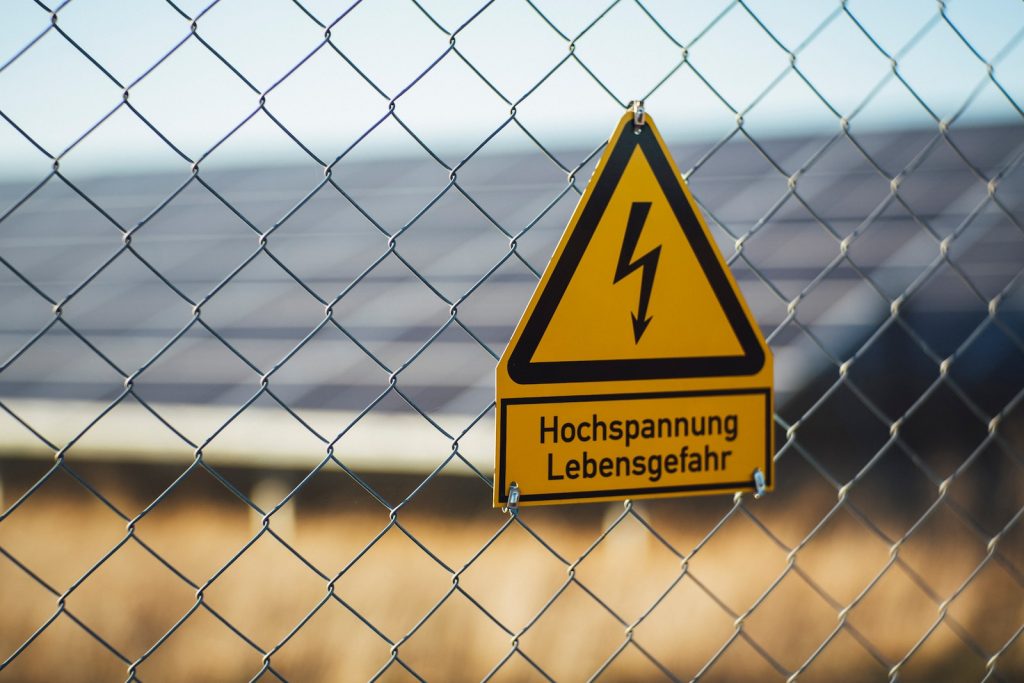Oh, the joys of using extension cords outdoors! Creating the ideal backyard paradise is an exhilarating experience, only to be interrupted by an unforeseen need for more power.
Before your extension cord can be used, ensure it is suitable for outdoor use!
Using an indoor extension cord outdoors can lead to risks such as electrical shock, short circuits, and even fires. As you prepare to dim the lights this season, it is essential to know if an extension cord is safe for outdoor use.
Extension Cord Basics
Types of extension cords: indoor and outdoor
Extension cords often come in two flavors: indoor and outdoor. Indoor extension cords are meant for indoor light-duty use and usually power your everyday gadgets like lamps, fans, and small appliances.
Cables suited for outdoor use, however, are rugged, heavy-duty, made to withstand the elements and power your outdoor devices.
Key differences between indoor and outdoor extension cords
You may be pondering, “Yet an extension cord is merely an extension cord, correct?” Wrong! When choosing an extension cord for indoor and outdoor use, one must consider several key distinctions, such as insulation, construction, and amperage capacity.
Cords for Outside typically have thicker, more durable insulation to protect against moisture, temperature changes, and direct sunlight. Outdoor devices often require a third prong.
The role of insulation in extension cords
Insulation is the unsung hero of extension cords, keeping the electrical current contained and preventing potential hazards. Outdoor extension cords must be extra tough, like braving the great outdoors.
The thicker padding in outdoor cables helps protect the wiring from the wrath of Mother Nature, ensuring a safe and uninterrupted power supply.
Outdoor Extension Cord Features
Rating for outdoor use
To easily identify an extension cord suitable for outdoor use, look for a label or marking indicating it’s “rated for outdoor” or “for use outdoors.”
These cords are specifically designed to withstand the elements and keep your devices powered safely. Best extensions for outside use usually have a letter “w” marking with an amperage rating.
Heavy-duty construction and materials
Outdoor extension cords are made of vinyl, rubber, or plastic, making them more rugged and weather-resistant. They’re like the all-terrain vehicle of extension cords, ready to take on any challenge that comes their way.
Grounding and higher amperage capacity
Outdoor expansions often have a grounding prong for added safety and can handle higher amperage loads than their indoor counterparts.
This is essential when running power-hungry tools or appliances requiring much juice.
Identifying an Outdoor Extension Cord
Labeling and markings for outdoor use
Manufacturers make it easy to know if an extension cord is designed for outdoor use. Look for a label or marking on the cord, plug, or packaging that indicates it’s rated for outdoor use.
These markings can be text or symbols and will help you easily identify an outdoor-safe extension cord.
Plug and prong characteristics.
Outdoor extension cords typically have a three-prong plug, with one prong being the grounding prong for added safety. While some indoor cords have three prongs, outdoor cords are likelier to have this feature.
Additionally, the prongs on cables to use outside are often more robust, ensuring a secure connection in the great outdoors.
Insulation and cord thickness
As mentioned earlier, insulation is crucial in outdoor extension cords. Outdoor power extenders tend to have thicker, more durable insulation to protect against moisture and other elements.
If you’re unsure whether a cord is suitable for outdoor use, compare the thickness of the insulation to that of a known indoor cord. The difference should be noticeable.
Choosing the Right Extension Cord for Your Outdoor Needs
Amperage and power requirements
Before acquiring an extension cord for your outdoor setup, it is essential to consider the amperage capacity of the devices you plan on utilizing.
Outdoor cords are specially constructed with a higher capacity rating than typical applications, but it is paramount that they are suitable for the combined comparable needs of all connected devices.
Always ensure that the maximum limit current offered by any extension cable corresponds with or exceeds your electronic equipment’s aggregate power requirements!
Length and gauge considerations
When it comes to extension cords, size does matter. The length and gauge of the cord can impact its performance and safety.
As a rule of thumb, use the shortest cord to minimize voltage drop and potential hazards. Opt for a thicker-gauge cord (lower gauge number) for longer distances and higher amperage loads.
Safety features and certifications
Look for outdoor extension cords with safety features like built-in circuit breakers or surge protection. These can help protect your devices and prevent electrical hazards.
Also, check for certifications like UL or ETL, which indicate that the cord has undergone rigorous testing and meets safety standards.
Best Outdoor Extension Cord Recommendations
Top-rated outdoor extension cords on the market
Now that you know what to look for, it’s time to choose the best outdoor extension cord. Research top-rated cords, compare features, and read customer reviews to find the perfect match.
A few popular choices include heavy-duty, vinyl-covered cords and those with built-in surge protection.
Comparing features and pricing
When comparing outdoor extension cords, consider both features and pricing. Making decisions can be a difficult process, especially when it comes to choosing the right cord.
While cost-savings are enticing, quality and safety must be prioritized. Selecting the most suitable option will provide maximum durability with optimum performance at a bargain price!
Customer reviews and experiences
Never underestimate the power of customer reviews. Reading about others’ experiences can help you make an informed decision and avoid potential pitfalls.
Look for patterns in the reviews, such as comments on durability, performance, and overall satisfaction.
Indoor vs. Outdoor Applications
Situations where an outdoor extension cord is essential
Outdoor extension cords are a must when powering tools, appliances, or decorations exposed to the elements.
Examples include powering garden equipment, setting up an outdoor entertainment system, or illuminating your holiday decorations.
When an indoor extension cord is sufficient
Indoor extension cords are suitable when the cord is not exposed to moisture or extreme temperatures, such as running power to a device inside a covered patio or garage.
However, always prioritize safety and follow manufacturer guidelines when choosing an extension cord.
The importance of following manufacturer guidelines
Manufacturers provide guidelines for using their products safely and effectively. Always read and follow the instructions included with your extension cord to ensure optimal performance and avoid potential hazards.
Extension Cord Safety and Maintenance
Proper storage and care for outdoor extension cords
Proper storage and care can extend the life of your outdoor extension cord. When not in use, store the cord coiled and keep it away from direct sunlight.
Regularly examine your cord for any signs of wear or tear; if you notice cuts or exposed wires, don’t hesitate to replace them!
Common issues and how to address them
Issues like frayed wires, damaged plugs, and loose connections can pose safety risks. Address these problems promptly by repairing or replacing the cord as needed. If you’re unsure about the safety of your cord, consult a professional or purchase a new one.
Safety tips for using extension cords outdoors
- Keep cords away from water and moisture
- Avoid overloading the cord with too many devices.
- Do not run cords under rugs, carpets, or through doorways.
- Use cords with built-in GFCI protection when working with power tools or near water.
- Never modify or alter an extension cord in any way .
- Unplug the cord when not in use to prevent potential hazards.
- Regularly inspect your cord for damage and replace it if necessary.
- Follow all manufacturer guidelines and recommendations.

in this all-inclusive guide, we’ve thoroughly explored verifying an extension cord’s appropriateness for outdoor usage.
Elucidated the distinction between indoor and outdoor cords; and identified pointers that should be observed when selecting a suitable extension cord for your outside needs.
We have also offered tips on proper safety precautions and upkeep and recommendations for some of the most effective options in this category.
Using the right extension cord for outdoor applications ensures the safety and longevity of both your devices and your cord. Happy outdoor powering!


